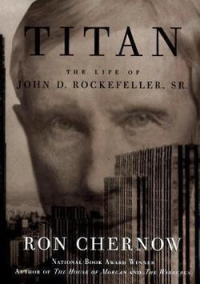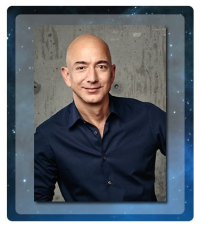
Lynn was a scholar for the New America Institute, a Clinton-era think tank meant to stand against conservative groups like the Heritage Foundation. There, Lynn developed a strong case against monopolies and their control over politics.
Monopolies, by their nature, see their first job as maintaining their own status, and the monopoly “rents” they obtain from consumers as a result. AT&T is a great example of such a monopoly. They create a whole raft of political front groups, which chime in whenever the company starts making political demands, on a state or federal level, even before courts. The original name for this site was based on my support of a 2005 book by Bruce Kushnick detailing this.
Here is what I have learned since then.
All business trends toward monopoly. We have known this for over a century. This is because monopolists create efficiency. Standard Oil lowered costs and made oil production “cleaner” than it had been in the Wild West Days of the industry, the late 1860s, when drillers filled old whiskey barrels with the product, loaded up horse-drawn carriages, and whipped those poor horses down mud to small refiners. By contrast, the Standard delivered product efficiently, via pipeline, to large refineries and delivery systems that could invest in creating many different products from it, then ship the results around the world.

This is how we got street cars. It’s how we got electric utilities. It’s how we got natural gas lines. It’s how we got telephony. AT&T’s Theodore Vail promised “universal service” if he were given a monopoly. Everyone would be able to make a phone call. The alternative was easily seen on Wall Street during the preceding decade, a welter of wires going hither-and-thither, from competing companies with competing standards, and services that couldn’t reach the suburbs, let alone the countryside.
This is how our cities developed. Social goods were either created directly from government funds, like roads, or these goods were developed as government-regulated monopolies. It’s still a good model.
The problem is that, starting in the Reagan era, the monopolists decided the deal was not good enough. They wanted the market control, but they didn’t want the regulation. They preferred the monopoly rents. Even after AT&T was broken up, by court order, starting in 1984, it quickly re-assembled like the brooms in The Sorcerer’s Apprentice, so now you may have two choices for Internet service, or just one, and these companies are free to charge what they will, controlling what you can do with the resource.

I have seen this just since Kushnick’s book was published. It’s why Barry got fired on his big day.
Google has become a search monopoly with no help from the government. While AT&T was soaking up billions of dollars in government aid, still aimed at offering universal service (while selling off the high-cost units that could have used the money), and banking that cash as profits that let it pay investors 5% in dividends to own the stock, Google was investing in what are now called cloud data centers, and in software, so that the Doubleclick ad network it bought in 2005 now controls the media board. Google itself is under competitive threat, from Facebook, which was quicker than Google was into mobile, and is quicker generally because it’s smaller. Amazon is also challenging it, killing it in e-commerce and building its own network for merchants that’s more efficient than Google’s own. Google, too, is also facing inefficiencies and crime within its network. Uneasy hangs the crown.
Today the most valuable companies in the world are, in order, Apple, Google, Microsoft, Facebook, and Amazon.com. Between them, they have a market cap of $2.5 trillion, almost one-third the value of the whole NASDAQ which, along with the New York Stock Exchange, represents 40% of the world’s stock equity.
The people who control these companies can buy-and-sell governments. Google co-founders Larry Page and Sergey Brin are each worth as much as a Koch brother. Amazon founder Jeff Bezos is pushing Bill Gates for the title of the world’s richest man, at over $80 billion. Mark Zuckerberg is close behind at almost $70 billion.
The self-interest of these men is far more consistent with the preferences of the modern Democratic Party than with the Republicans, who remain tied to the last generation’s resource barons. Tech companies rely on human capital. Money isn’t pulled from the ground, it’s developed in classrooms and bedrooms. This is the key economic and political fact of our time.

The Google guys have been quiet. Through Eric Schmidt, their former mentor, they created Barack Obama, giving him a cloud-based infrastructure that was unbeatable in 2008, but that campaign system was beaten last year. It needs to be extended, made into a machine that fights voter purges, that gets people registered, and gives them the tools with which to vote. So far, crickets.
This is how Barry Lynn re-enters the narrative.
Lynn’s buying the idea that Google is a monopoly, just like AT&T. It is a monopoly, but it is nothing like AT&T. What it wants from government are policies that help it create human capital, and import what it can’t create. That means education, acceptance of diversity, better infrastructure, and freedom of thought for all. A pre-emptive dump on all that is the height of political stupidity. Equating something that is earned, global and in your best interests with something that is government-created, solely domestic, and aimed only at its short-term interests is madness.

Just don’t tell the so-called “liberal” media. Of course, they still think someone should pay them for living. They’re a lot more like AT&T than Google anyway.










I can’t seem to find the underlying story. What was this great triumph, and how is it a triumph if Barry Lynn doesn’t understand the true nature of the Google monopoly?
(BTW, it seems you’ve got up there a photo of the other Barry Lynn, the head of Americans United for the Separation of Church and State.)
I can’t seem to find the underlying story. What was this great triumph, and how is it a triumph if Barry Lynn doesn’t understand the true nature of the Google monopoly?
(BTW, it seems you’ve got up there a photo of the other Barry Lynn, the head of Americans United for the Separation of Church and State.)
The “great triumph” was Democrats agreeing, generally, to go with Single Payer healthcare. Barry Lynn is a big single payer advocate.
The “great triumph” was Democrats agreeing, generally, to go with Single Payer healthcare. Barry Lynn is a big single payer advocate.